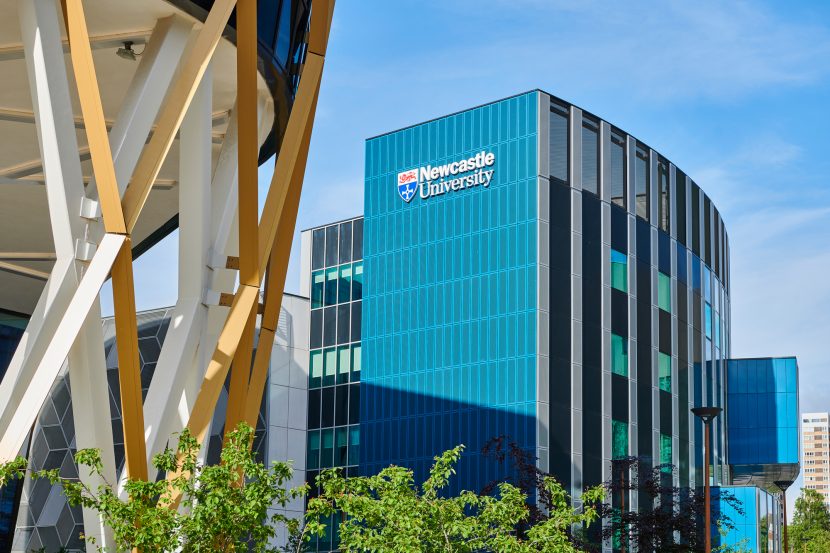Investments across life sciences, sustainable engineering and digital tech spin-outs have totalled over £40 million in 2023. Created from research discoveries, the University’s 37 active spin-out companies now employ more than 300 people.
Spearheading the investment surge is Advanced Electric Machines who last month announced a £23M fund raising round. The funding will be used to scale up production of sustainable motors for the automotive industry, deliver on ambitious growth plans to establish a global sales footprint, and bolster R&D capabilities. The Series A funding round was led by Legal & General Capital and Barclays Sustainable Impact Capital with significant additional investment from Par Equity. Other investors included Northstar Ventures, the Low Carbon Innovation Fund 2 and Turquoise Capital LLP.
Aelius Biotech have secured £1.25 million from investment house, Mercia. Based at the Newcastle Helix innovation district, the company uses advanced insight to the human gastrointestinal tract to help companies design orally delivered products and therapeutics.
CellRev span-out in 2019. Developed initially around an ability to grow new human corneas, their breakthrough technology is founded on being able to continuously grow, detach and collect adherent cells. Existing investors have added a further £1.05 million to the Helix-based company.
XR Therapeutics has attracted £925,000 from Northstar Ventures and angel investors. The company uses immersive digital technologies to support therapists’ work with patients to overcome anxiety. By combining life-like digital scenes with face-to-face Cognitive Behavioural Therapies, patients are able to learn about and manage their anxiety triggers.
Angel investors and Northstar Ventures are also behind a £635,000 fund raise for Dragonfly Insulation. Inspired by the flying insect’s wing, the company uses silica aerogels to create fire-resistant lightweight insulation.
Other investments throughout the year have been secured by:
- AMLo Biosciences – working with cancer biomarkers to improve patient outcomes
- Gitlife – providing proof of ownership and provenance for engineered biological assets
- Mignon – developing novel edge, AI chip architecture
- ScubaTX – organ preserving technology to increase transplant availability and survivability
- Marrabio – design, engineering and construction of bacterial protein polymers
- Nunabio – synthetic DNA production for cutting-edge biotechnology solutions
All told, investments across 16 Newcastle University spin outs in 2023 total just over £40 million.
Negotiations are also at an advanced stage for two further investments set to be announced in early 2024.
Company Creation expertise and angel group
Two key enablers of spin-out success are the Northern Accelerator scheme and the University’s angel investor group.
Northern Accelerator is an innovative collaboration between Durham, Newcastle, Northumbria, Sunderland, Teesside and York Universities. It provides specialist support including pre-incorporation funding and the placement of experienced executives into spin-outs.
Richard Baker, Programme Lead for Northern Accelerator and Director of Economic Development and Commercialisation at Durham University, said: “The investment raised by these spinouts in 2023 demonstrates both the great potential for business creation which exists in North East universities and the value of the support delivered though the Northern Accelerator programme.
“Our collaboration set out to revolutionise research commercialisation in the North East’s universities and continues to deliver on this ambition. Newcastle University is one of our founder members alongside Durham, Northumbria and Sunderland, and supports a strong pipeline of innovative commercial opportunities and it is great to see the confidence that investors have in the high potential and de-risked commercial opportunities spinning out with Northern Accelerator support”.
Further support comes from an angel investor group formed by Newcastle University earlier this year to provide very early stage pre-seed or seed investments into spin-outs. Two companies have already benefitted from investments from this group.
UK spin-out landscape
The attractiveness of spin-outs to investors has been a topic of great debate in recent years. Some investors suggest that the ownership and operating terms across company founders, universities and early investors can be a barrier to further investment.
Earlier this month HM Treasury published an independent review of spin-out practice. The report’s recommendations include ensuring university policies on innovation and ownership are underpinned by guidance co-developed between investors, founders and universities.
Newcastle University’s Head of Company Creation, Rick McCordall, said: “We’re delighted to see such strong investor confidence in our spin out companies.
“Our goal when developing new companies is to create high-value jobs in the North East of England. To do this we need to bring together world-leading research and discovery with commercial know-how and investor backing.
“I think that the investment successes this year show that we have a strong, investor-friendly approach to ownership and company growth.”

